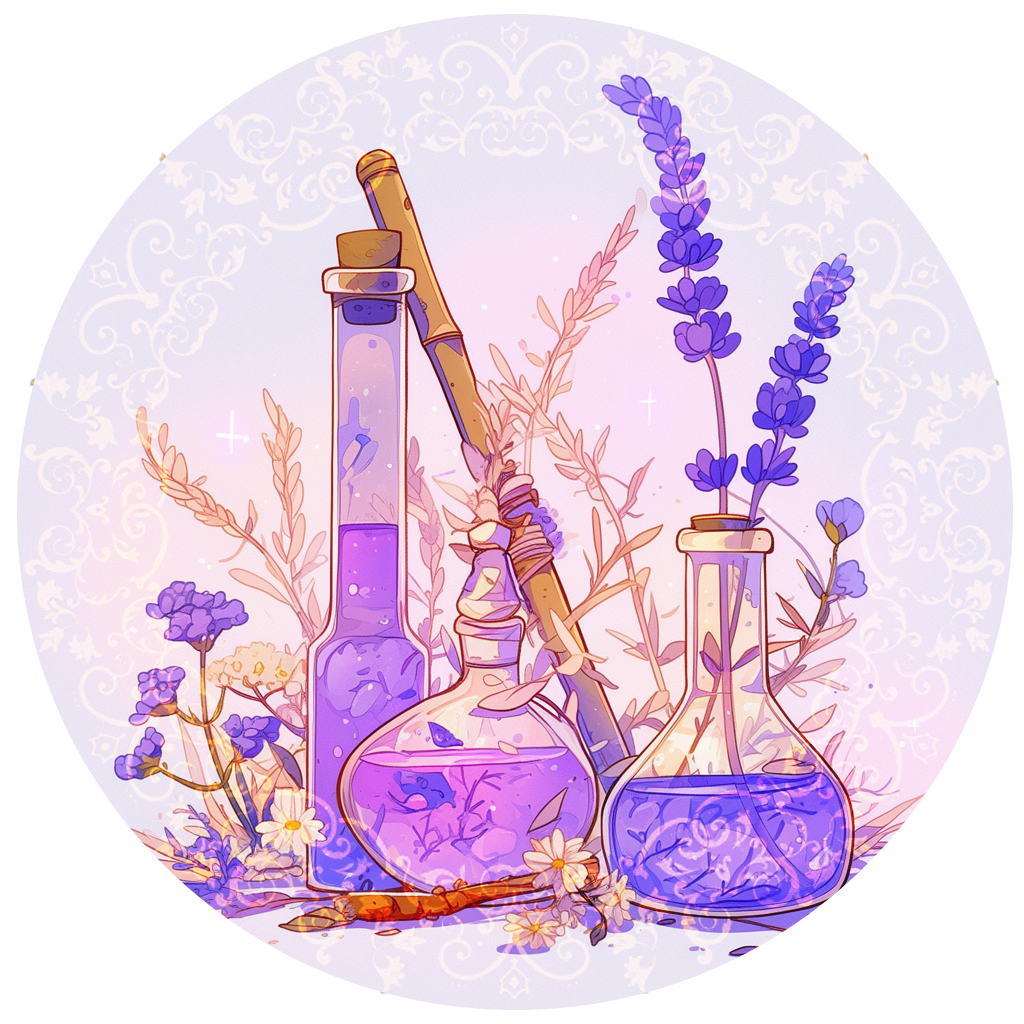Herbs have long held a special place in magical and pagan traditions, serving as tools for healing, divination, and ritual. From the ancient practices of herbalism to modern witchcraft, the power of herbs is celebrated for their ability to enhance spiritual practices and personal well-being. Whether you’re a seasoned practitioner or new to the path, understanding the magical properties of common herbs can deepen your connection to the natural world and enrich your spiritual practices. Here’s a guide to some popular herbs and their witchy and pagan uses.

Sage (Salvia officinalis)
Sage is renowned for its purifying qualities, making it a cornerstone in many magical and pagan practices. Its most famous use is in smudging, where burning sage helps cleanse spaces of negative energies and invite positive influences. In rituals, sage serves to protect and clear away unwanted spiritual clutter, creating a harmonious environment. It’s also used in spellwork to promote wisdom and new beginnings, harnessing its energy to refresh and renew.
Lavender (Lavandula angustifolia)
Lavender is celebrated for its calming and soothing properties, both physically and spiritually. In magical practices, lavender is often used to promote peace, relaxation, and emotional balance. Its scent enhances dreams and is used in dream pillows and sachets to aid sleep and support dream recall. Pagans also use lavender in rituals to attract love, uplift the spirit, and purify spaces, leveraging its tranquil energy to foster serenity and emotional healing.
Rosemary (Rosmarinus officinalis)
Rosemary is a powerful herb known for its protective and purifying abilities. It is commonly used in magical practices to enhance mental clarity and memory. Rosemary’s invigorating scent makes it a popular choice for purification rituals, helping to clear spaces and dispel negative energies. In pagan traditions, rosemary symbolizes remembrance and fidelity, making it ideal for honoring ancestors and strengthening personal connections. Its use in spells for courage and strength highlights its role in empowering and supporting personal growth.
Mugwort (Artemisia vulgaris)

Mugwort is deeply connected with the realms of divination and the spirit world. It is used in magical practices to enhance psychic abilities and facilitate vivid dreams. Mugwort’s presence in dream pillows and teas aids in dream recall and interpretation, making it a favorite among those seeking insight and spiritual guidance. For pagans, mugwort is also a protective herb, supporting astral travel and safeguarding against negative influences during spiritual work.
Thyme (Thymus vulgaris)
Thyme is valued for its protective properties and its ability to boost courage and strength. In magical workings, thyme is used to bolster confidence and overcome fears, offering support in both personal and spiritual challenges. In pagan rituals, thyme is associated with purification and personal empowerment, often included in spells to promote positive change and growth. Its energizing properties make it a useful herb for enhancing mental clarity and stimulating spiritual awareness.
Peppermint (Mentha piperita)
Peppermint is known for its refreshing and invigorating qualities, making it a versatile herb in magical practices. It is commonly used to enhance mental clarity, increase energy, and support manifestation efforts. Peppermint’s bright and stimulating nature is harnessed in rituals focused on attracting prosperity and abundance. Its use extends to fostering creativity and focus, helping to channel energies towards achieving personal and spiritual goals.
Chamomile (Matricaria chamomilla)
Chamomile is cherished for its soothing effects and is often used to promote relaxation and restful sleep. In magical and pagan practices, chamomile is employed to attract prosperity and well-being, infusing rituals with a sense of peace and comfort. Its calming properties make it ideal for reducing stress and anxiety, and it is commonly included in healing spells and sachets to support emotional and physical balance.
Embracing Herbology

Integrating herbs into your spiritual practices offers a profound connection to nature and its energies. Whether used in rituals, spells, or daily routines, these herbs provide practical and mystical benefits that enrich your life. Experiment with different forms—teas, tinctures, essential oils, or dried bundles—to discover how these plants resonate with your personal path. As you work with these herbs, remember that the true magic lies in your intention and the energy you bring to your practice. Embrace the journey, and let these botanical allies guide and inspire you on your spiritual journey.




